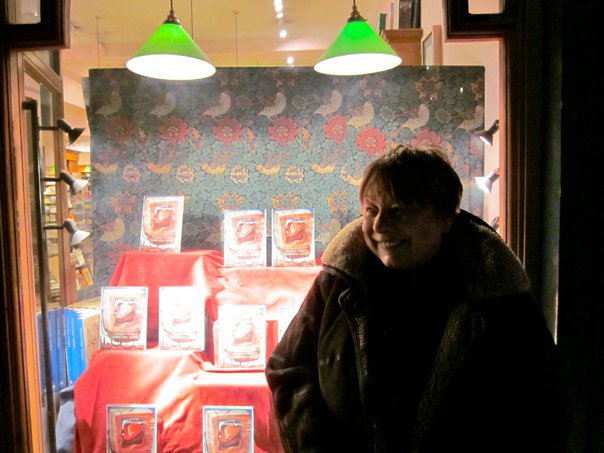The Literary Review, 2/2011 (EN)

“Remarkable book…”
The Literary Review, 2/2011
This short novel is an unnerving portrait of a world that has lately experienced rapid, brutal change, and is still experiencing it. To portray confusion by means of confusion is ambitious, but Kapitáňová is bold and clever: it’s a remarkable book… (John de Falbe)

Readers who enjoyed Peter Pišt’anek’s trilogy, Rivers of Babylon - and they are numerous - will be delighted to hear that the indefatigable Donald Rayfield has brought us, through his imprint the Garnett Press, another acerbic black comedy from Bratislava. Samko Tále’s Cemetery Book is a deliberately rambling account of grievances, prejudices, anecdotes and worries narrated by a simpleton with a notable susceptibility to his own perfectly circular arguments, who has busily collected cardboard for twenty-eight years. He has ‘become a writer because it’s raining, and when it’s raining I can’t collect cardboard, because it’s raining.’ Moreover, the rear-view mirror has broken off his trusty handcart and needs fixing.
Samko’s primary grievance is that things aren’t what they used to be. Life under Communist rule suited him. He worked hard and his needs were met. If people were puzzling, or misbehaved, then Karol Gunár (PhD Social Sciences) sorted them out. Political refinements may elude him, but he understands that reporting things to Karol Gunár (PhD Social Sciences) doesn’t earn him gratitude and rewards nowadays. ‘When we still had the Communist Party he could sort out everything because he was High Up and it was the law for them to sort everything out.’ Now when he reports Krkan from Recycling for lying, all Karol Gunár (PhD Social Sciences) has to say is ‘that this was what we wanted, this was that Democracy of ours and now it was up to other people to sort out that idiot Krkan.’ Despite his misapprehensions and egocentricity, Samko’s nostalgia for a world in which things were fixed and comprehensible is touching, and his continuing determination to work hard commands our respect.
Samko’s responses concerning Jews, Germans, gays, blacks, women, Gypsies and those who bother him are rather less endearing. The reader is caught between sympathy for Samko’s congenital failure to understand and the suspicion that he is repeating attitudes that, until recently, were openly acceptable and now are only just latent beneath the surface of the new society in which he lives. Kapitáňová shifts between the slapstick of ‘they don’t count because they are Gypsies’ and a much more complex dynamic between what Samko may have inferred or been told, and between what those telling him expected him to understand and what he may actually be capable of understanding. When trying to comprehend his grandparents’ puzzling attitude towards a table and a piano that ‘came from an auction where you could buy things left behind by the Jews’, Samko explains, ‘Because a long time ago, when the Jews went away, for example to concentration camps, they had to leave their things behind and the things had to be sold, because why would Jews need things like a piano in a concentration camp, right?’ Finding comedy in such things is a risky, delicate business, but Kapitáňová succeeds by moving quickly on. Some of Samko’s opinions may be nasty but he sets little store by them himself; they are asides. He is much more interested in his achievement in the Young Pioneers, and the still embarrassing circumstance that his scarf was orange instead of the prescribed shade of red. The comedy is heightened by the contrast, and achieves bite with the implication that if Samko finds his monstrous attitudes so unremarkable then it is because they are commonplace among the people around whom he has grown up.
This short novel is an unnerving portrait of a world that has lately experienced rapid, brutal change, and is still experiencing it. To portray confusion by means of confusion is ambitious, but Kapitáňová is bold and clever: it’s a remarkable book. Julia Sherwood’s translation of what must be an extremely awkward text (because of Samko’s crude literary skills) reads very well.
John de Falbe is the author of two novels, The Glass Night (1995) and The Bequest (2003). He is also a director of John Sandoe (Books) Ltd, an independent bookshop in London.
John de Falbe
The Literary Review, 2/2011
![]() Objednať knihu v anglickom internetovom kníhkupectve:
Objednať knihu v anglickom internetovom kníhkupectve:
https://eshop.qmul.ac.uk/browse/extra_info.asp?modid=1&prodid=325&deptid=19&catid=17